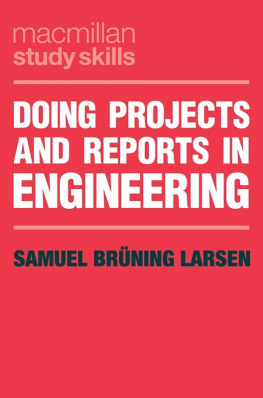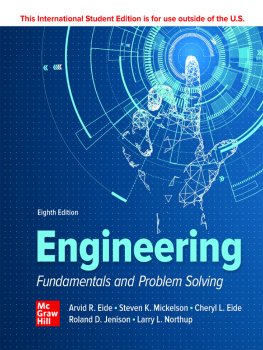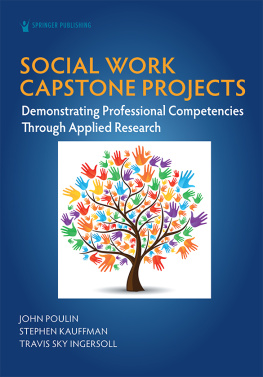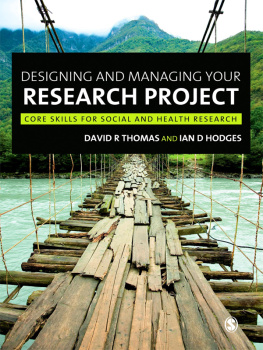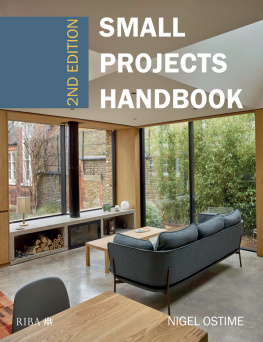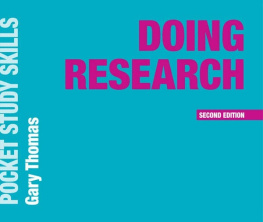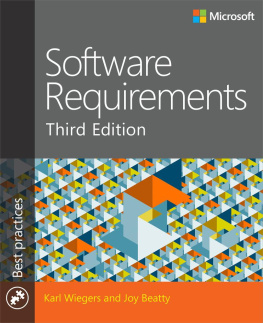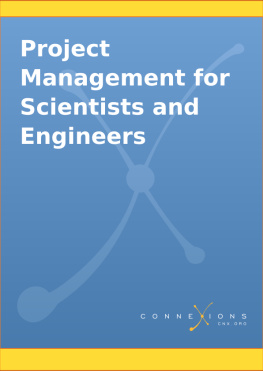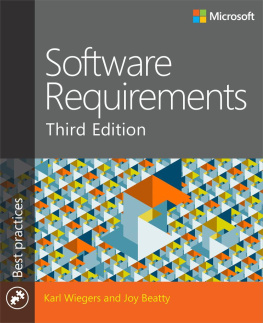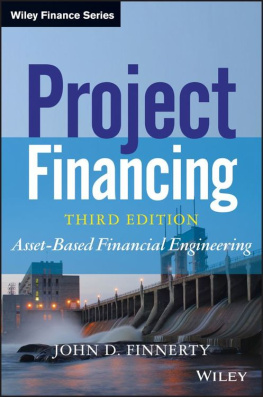Doing Projects and Reports in Engineering
www.thestudyspace.com the leading study skills website
Study Skills
Academic Success
Academic Writing Skills for International Students The Business Students Phrase Book
Cite Them Right (10th edn)
Critical Thinking and Persuasive Writing for Postgraduates
Critical Thinking Skills (3rd edn) Dissertations and Project Reports
Doing Projects and Reports in Engineering
The Employability Journal
Essentials of Essay Writing
The Exam Skills Handbook (2nd edn)
Get Sorted
Great Ways to Learn Anatomy and Physiology (2nd edn)
How to Begin Studying English Literature (4th edn) How to Use Your Reading in Your Essays (3rd edn) How to Write Better Essays (4th edn)
How to Write Your Undergraduate Dissertation (3rd edn)
Improve Your Grammar (2nd edn)
The Mature Students Handbook
Mindfulness for Students
The Macmillan Student Planner
The Personal Tutors Handbook
Presentation Skills for Students (3rd edn)
The Principles of Writing in Psychology Professional Writing (3rd edn)
Skills for Success (3rd edn)
Stand Out from the Crowd
The Student Phrase Book
The Students Guide to Writing (3rd edn)
Study Skills Connected
The Study Skills Handbook (5th edn)
Study Skills for International Postgraduates Studying in English
Studying History (4th edn)
Studying Law (4th edn)
Studying Physics
The Study Success Journal
Success in Academic Writing (2nd edn)
Smart Thinking
Teaching Study Skills and Supporting Learning The Undergraduate Research Handbook (2nd edn) The Work-Based Learning Student Handbook (2nd edn)
Writing for Engineers (4th edn)
Writing History Essays (2nd edn)
Writing for Law
Writing for Nursing and Midwifery Students (3rd edn)
Write it Right (2nd edn) Writing for Science Students
Writing Skills for Education Students
You2Uni: Decide, Prepare, Apply
Pocket Study Skills
14 Days to Exam Success (2nd edn)
Analyzing a Case Study
Blogs, Wikis, Podcasts and More
Brilliant Writing Tips for Students Completing Your PhD
Doing Research (2nd edn)
Getting Critical (2nd edn)
Managing Stress
Planning Your Dissertation (2nd edn) Planning Your Essay (2nd edn)
Planning Your PhD
Posters and Presentations
Reading and Making Notes (2nd edn) Referencing and Understanding Plagiarism (2nd edn)
Reflective Writing
Report Writing (2nd edn)
Science Study Skills
Studying with Dyslexia (2nd edn)
Success in Groupwork Successful Applications
Time Management
Wheres Your Argument?
Writing for University (2nd edn)
Research Skills
Authoring a PhD
The Foundations of Research (3rd edn)
Getting to Grips with Doctoral Research Getting Published
The Good Supervisor (2nd edn)
The Lean PhD
PhD by Published Work
The PhD Viva
The PhD Writing Handbook
Planning Your Postgraduate Research
The Postgraduate Research Handbook (2nd edn) The Professional Doctorate
Structuring Your Research Thesis
Career Skills
Excel at Graduate Interviews
Graduate CVs and Covering Letters Graduate Entrepreneurship
How to Succeed at Assessment Centres Social Media for Your Student and Graduate Job Search
The Graduate Career Guidebook
Work Experience, Placements and Internships
For a complete listing of all our titles in this area please visit www.macmillanihe.com/study-skills
Doing Projects and Reports in Engineering
Samuel Brning Larsen

Samuel Brning Larsen, under exclusive licence to Springer Nature Limited 2019
All rights reserved. No reproduction, copy or transmission of this publication may be made without written permission.
No portion of this publication may be reproduced, copied or transmitted save with written permission or in accordance with the provisions of the Copyright, Designs and Patents Act 1988, or under the terms of any licence permitting limited copying issued by the Copyright Licensing Agency, Saffron House, 610 Kirby Street, London EC1N 8TS.
Any person who does any unauthorized act in relation to this publication may be liable to criminal prosecution and civil claims for damages.
The author has asserted his right to be identified as the author of this work in accordance with the Copyright, Designs and Patents Act 1988.
First published 2019 by
RED GLOBE PRESS
Red Globe Press in the UK is an imprint of Springer Nature Limited, registered in England, company number 785998, of 4 Crinan Street, London, N1 9XW.
Red Globe Press is a registered trademark in the United States, the United Kingdom, Europe and other countries.
ISBN 9781352005639 paperback
This book is printed on paper suitable for recycling and made from fully managed and sustained forest sources. Logging, pulping and manufacturing processes are expected to conform to the environmental regulations of the country of origin.
A catalogue record for this book is available from the British Library.
A catalog record for this book is available from the Library of Congress.
Contents
Acknowledgements
I want to thank my awesome wife, Anne Marie, and my three children, Ida, Bertram and Valdemar, for giving me the time to write this book. I could not have come even close without your support. I also want to extend my thanks to my colleagues for valuable ideas and feedback. In particular, to John Clausen and Per Bigum.
Introduction
Project work within universities comes with different names, as shown in . Regardless of the name, this handbook will enable you to conduct great engineering projects and write clear and coherent reports.
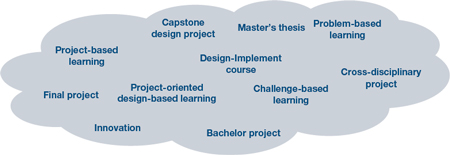
Figure 0.1 Project work comes with different names
This book is for all engineering disciplines, it is useful from the first to the last semester, and focuses on group and single-person projects. It is founded on the principle that engineers design solutions to problems. Mechanical engineers design machines, civil engineers design buildings, manufacturing engineers design production systems, electrical engineers design control systems, software engineers design programs, and chemical engineers design chemical processes and products. Great designs of products, buildings, processes, and systems depend on rigorous analyses and are followed by actual implementation. The sequence of analysis, design, and implementation constitutes the core of an engineering project across disciplines.

Figure 0.2 The sequence of the three core activities in an engineering project
Project work within the humanities, social studies, and natural science disciplines, differs quite substantially from engineering fields. Within these disciplines, project work usually means conducting research that investigates unanswered questions and thereby contributes to our common knowledge about the world, human nature, art, and culture.
The purpose of most engineering projects is designing solutions to problems. Designing a solution to a problem differs fundamentally from conducting research that ends with the answer to a research question. This book provides you and your supervisors with concrete advice for conducting each activity in a project and writing a clear and coherent report.
Next page
